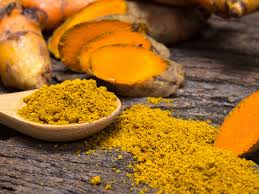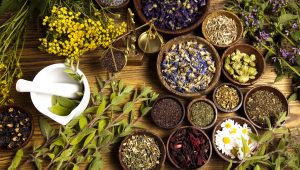The liver is without doubt one of the most important and miraculous organs of our bodies. It’s the job of the liver to filter over a liter of blood every minute of every day to remove harmful toxins – these can be anything from the products of cigarette smoke to toxic chemicals, air pollutants, pesticides and drugs. The liver also plays a key role in maintaining hormonal balance, fat regulation, digestion and the storage of vitamins and minerals.
With so many important tasks to perform, it makes sense for us to take the best care of our liver as possible – and if you’re participating in Dry January this year you’re giving your liver a chance to detox and repair itself. That’s a great start, but what else can we do to help the liver out? This week lets look at some of the common causes for stress on the liver, and how we can help to reduce them.
Herbal medicine
Herbal remedies are often an excellent approach to wellness which can avoid the need for synthetic medication, of the type which often come with side effects. In fact just avoiding certain medications is a good move for the liver, but before taking any herbal remedies as an alternative do be sure to do your research. Some herbs or combinations of herbs can be dangerous for the liver.
The common herb comfrey (Symphytum officinale) can wreak havoc on the liver. Comfrey contains chemicals called pyrrolizidine alkaloids, which may be poisonous to the liver. Comfrey is banned in Germany and Canada, but not in the United States. The herb is found in teas, cereals and herbal remedies.
Medication and the Liver
Sometimes medication is necessary to help the body overcome illness or disease, and we certainly aren’t suggesting that you shouldn’t take medications that your doctor has prescribed for you – but if you want to protect your liver, its worth considering how often you use over the counter medications. Pain killers in particular are a major issue for liver health – for example, high doses of acetaminophen, (which is the active ingredient in the drug Tylenol and similar products), has been shown to lead to liver cell death – especially when combined with alcohol. A three-year study looked at 308 patients with acute liver failure from 17 different Liver-care centres. Acetaminophen accounted for a whopping 39 percent of cases.[1]
Over using medications will obviously lead to problems, but in many cases even consuming the recommended doses of certain drugs may incite liver problems. For example, the weight-loss supplement LipoKinetix is linked to liver failure. In one study, the supplement was linked to live inflammation and liver failure in extreme circumstances. Its constituent elements, which are primarily stimulants including Yohimbine, Norephedrine and Caffeine can all be useful in small doses, but spell problems for the liver when used constantly.[2]
Alcohol and the Liver
Although many experts agree that certain alcoholic drinks, such as red wine and stout may actually be a health benefit in the long term, overuse of alcohol is of course linked to liver problems.
Continual alcohol abuse is a common cause of hepatitis and cirrhosis. As inflammation and scar tissue replace normal tissue, blood flow through the liver is affected, making it difficult for the liver to carry out essential functions. Some cases are also thought to lead to liver cancer.
Despite its filtering power, the liver can actually handle only very limited amounts of alcohol. As a general rule, one alcoholic drink per day for women and two per day for men is enough for the liver to manage. Of course, anyone who suffers from liver disease or alcoholism should avoid all alcohol.
Weight Problems and the Liver
You don’t have to drink alcohol or use drugs to be at risk for liver disease. In recent years, rates of nonalcoholic fatty liver disease (NAFLD) have jumped dramatically.
The accumulation of fat in liver cells causes NAFLD – and as you can guess from the name this condition affects individuals who drink little or no alcohol.
Incidence of NAFLD is skyrocketing, corresponding with the rise in obesity and diabetes. NAFLD affects both children and adults who are over weight or obese – who may or may not have diabetes and elevated cholesterol and triglyceride levels. What’ s most frightening is that early-stage NAFLD rarely causes symptoms.
NAFLD includes a wide spectrum of liver disease, ranging from simple fatty liver to more complex issues such as nonalcoholic steatohepatitis (NASH). NASH is associated with liver-damaging inflammation. In some cases, progress may lead to either cirrhosis or liver cancer. Equally alarming, recent studies have linked NAFLD to an elevated risk cardiovascular disease.[3]
The best defence against NAFLD is a healthy diet and regular exercise -as well as maintaining a healthy weight, normal cholesterol and correct blood sugar levels.
So how can I support my liver?
So you’ve cut out the alcohol for January, and that’s a great start (your liver thanks you!) – but what else can you do to keep the liver operating as its meant to?
Lessen the load
Make life easy for your liver by cutting down on alcohol and medication. If pain is an issue for you, why not try the drug free approach we offer here at our chiropractic clinic? For some clients, resolving the root cause of their pain can eliminate the need for medication altogether, which in turn reduces the risk of liver disease.
Eat to support the liver
There are a couple of foods which have been shown to play a positive role in supporting and assisting the liver.
Avocados: Previous research suggests that a diet rich in avocados may ward off certain forms of cancer, including prostate cancer and breast cancer. Now, research indicates that avocados may also stave off liver disease. [4]
Apples: Yes its true, the humble apple can actually help to protect against liver disease and some forms of cancer. Its likely that the best benefits actually come from the skin however – so avoid peeling! [5]
Spice things up
Considerable research now shows that spices may have a beneficial role to play in defending the liver – Curcumin, the component of the curry spice turmeric responsible for its yellow pigment, may stave off alcohol-related liver disease.[6]
Introducing turmeric into your cooking can be a good way to introduce curcumin to the diet, but turmeric supplements are also widely and cheaply available if you prefer.
Drink more Coffee
While over consumption of caffeine can be a stressor for the liver, a morning cup of coffee could be just what the doctor ordered. Several studies have now shown that a cup of coffee each day can stave off the risk of some cancers, and many forms of liver disease. One analysis determined that an increase in consumption of two cups of coffee per day was associated with a 43 percent reduced risk of liver cancer.[7]
Another long-term, large-scale study confirms these results. The 22-year analysis included 125,580 people whose medical hstory included considerable alchol use. Consuming just one cup of coffee each day slashed risks for alcohol induced cirrhosis by more than 20 percent. Whats more, because the link appears to have nothing to do with caffeine but with the coffee bean itself, it doesn’t matter if you prefer a decaffeinated version.[8]
Consider Milk Thistle Extract
While we cautioned you earlier that some herbal remedies can be problematic for the liver, Milk thistle extract isn’t one of them – in fact, research in rats suggests that its ripe seeds may provide protection for the liver.[9] If your daily routine contains many factors which put you at risk for liver trouble, supplementing with milk thistle might go some way to mitigating the damage.
[1] Annals Internal Med 2002;947-54
[2] Annals Internal Med 2002; 136:590-5
[3] D iabel Med 2007;24: 1 -6
[4] (J Agric Food Chem 200 I ;49:22 1 5-21
[5] Nature 2000;405: 903-4
[6] Am J Physiol Gas1roinlesl liver Physiol 2003;284:32 1 -27
[7] Gastroenterology 2007; 132: 1 740-5
[8] Arch Intern Med 2006;166:1 190-5.
[9] Alcohol C/in Exp Res 2006;30:407 -13



